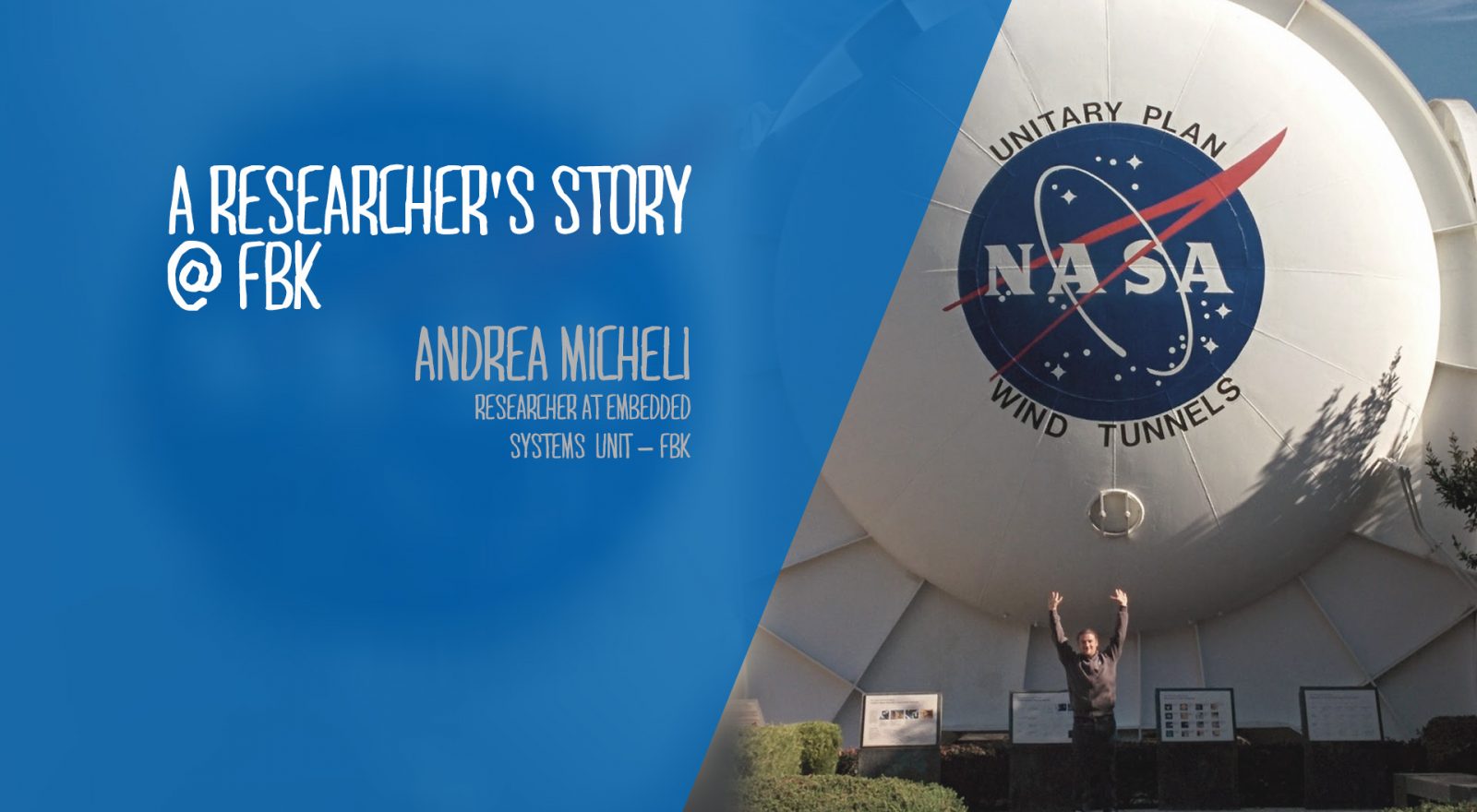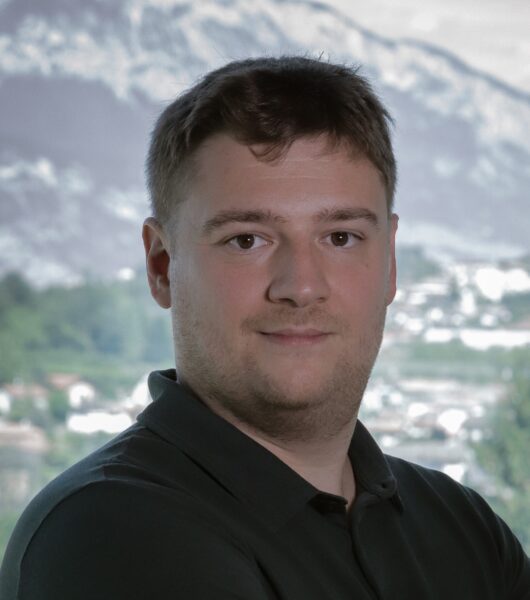
When Passion for Technology Can Reach Space | A Researcher’s Story
Andrea Micheli, FBK researcher, has always been passionate about technology. As the first guest of the series "A researcher's story @ FBK", he tells us how a passion can lead us to transcend the boundaries of planet Earth, pushing us further, into Space
We like to think that the passions we carry in the young age, can one day become a full-time job. Andrea shows us that this is possible. Speaking with him we have a picture not only of a professional researcher, but of a passionate one. An image of someone who has always had the desire to transcend the boundaries of knowledge. From small projects with Arduino or Raspberry PI, to his PhD thesis “Planning in temporally uncertain domains”.
Andrea, could you explain your thesis?
We wanted to consider temporal uncertainty. So the fact that you can’t control directly the duration of the actions. So for instance if you want to schedule yourself to go and catch a bus, you cannot be sure exactly when the bus will arrive. Because it’s not up to you. It’s up to the traffic. And so what we did, was that we wanted to model this kind of uncertainty directly into the planning problem and come up with plans that are robust. So an engineer or a domain expert can tell me: “well, I don’t know exactly how long it’s gonna take for the robot for going from point A to point B, but I can tell you that it will be between 10 minutes and 12 minutes”. Instead, if you precompute the plan and the strategy you want to follow, then a human is able to analyze. Of course it could be an economic effort, but if your system is Curiosity on Mars and costs billions of dollars to deploy it, then it’s worth the time spent in analyzing and certifying the plan.
Is that the theme that brought you to NASA?
Yes indeed. That’s why part of my work was in collaboration with NASA, and I did my internship in Mountain View.
Do you think about temporally uncertain domains also in your free time?
No not really. In my free time I’m a movie fan, and I also like Netflix and I like biking for instance.
So…how could we see your nerd side?
Well… for instance I used the raspberry PI to develop a smart mirror, that was a make up mirror for my girlfriend. So it has basically all the lights sorrounding the mirror that you can control, and also behind the mirror you can see time, you have the fortune of the day… so my girlfriend while making up she can actually look at these fancy things.
Well, that’s a nerd gift for real!
Of course it’s nerdy (he laughs). I’m not excusing myself. But my girlfriend really liked it, because it was handmade by me.
So that is something coming from the heart, like your choice of becoming a PhD?
Well, that was not properly the same thing, but surely it was a choice followed by my passion about technology and the push that I had by the FBK’s enviroment..
Is it better to be a researcher or a PhD?
I was more confident when I became a postdoc probably because you don’t have the thesis that is waiting for you. You are not any longer the student that is judged by the others, but you are part of a community that tries to push the boundaries of knowledge.
What have you been developing here in FBK?
So the kind of technology that we developed here in the ES unit for planning, are being used now in different projects. One of them is about a controlling system for factories in order to optimize the production. We also have one example here in Trentino.
Why do you think this kind of research and developement is important?
It’s very important because in Europe, because the job market is more expensive than in other countries. So we need to optimize our production in order to be competitive, otherwise the factories will simply close. On the other hand the explainability of what we are doing and the impact on the job market are things that we need to consider.
Everybody talks about artificail intelligence. How do you see that?
Looking back at my first artificial intelligence conference. We were not even close to what we can do just now. Associated to such an advancement, there is always a risk though.
What do you mean?
So the fact that you can use a machine to take decisions instead of a human is per se a kind of a risk. But we shall not leave the development to kill us, we need to anticipate it and we need to prapare for the changes that are in front of us.
We have only one chance left: go on researching.


